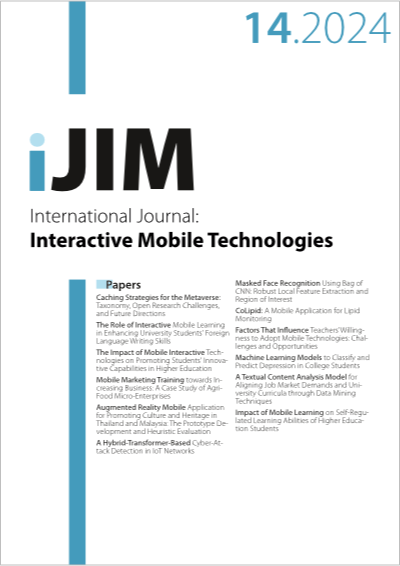Machine Learning Models to Classify and Predict Depression in College Students
DOI:
https://doi.org/10.3991/ijim.v18i14.48669Keywords:
classification, prediction, depression, machine learning, studentsAbstract
Depression is an increasingly common mental health condition worldwide and is influenced by various factors such as anxiety, frustration, obesity, medical issues, etc. In severe cases, it can even result in suicide. This study aimed to utilize machine learning (ML) models to categorize and forecast student depression. The research involved analyzing a dataset of 787 college students through a series of steps, including cleansing, model training, and testing using techniques to classify and predict student depression. Three ML models were employed: logistic regression (LR), K-nearest neighbor (KNN), and decision tree (DT). The findings revealed that the LR model achieved the highest accuracy in prediction, with a rate of 77%, 70% recall, and 72% F1 score. Moreover, the study highlighted that two out of five students experience mild depression, around 90% of depressed students do not seek treatment, obese students are 2.5 times more prone to depression, male students are twice as likely to be obese, and male students generally have a higher body mass index (BMI) compared to female students. The study concludes that integrating ML models into the triggers that lead to depression among students.
Downloads
Published
How to Cite
Issue
Section
License
Copyright (c) 2024 Orlando Iparraguirre-Villanueva, Cleoge Paulino-Moreno, Andrés Epifanía-Huerta, Carmen Torres-Ceclén

This work is licensed under a Creative Commons Attribution 4.0 International License.


